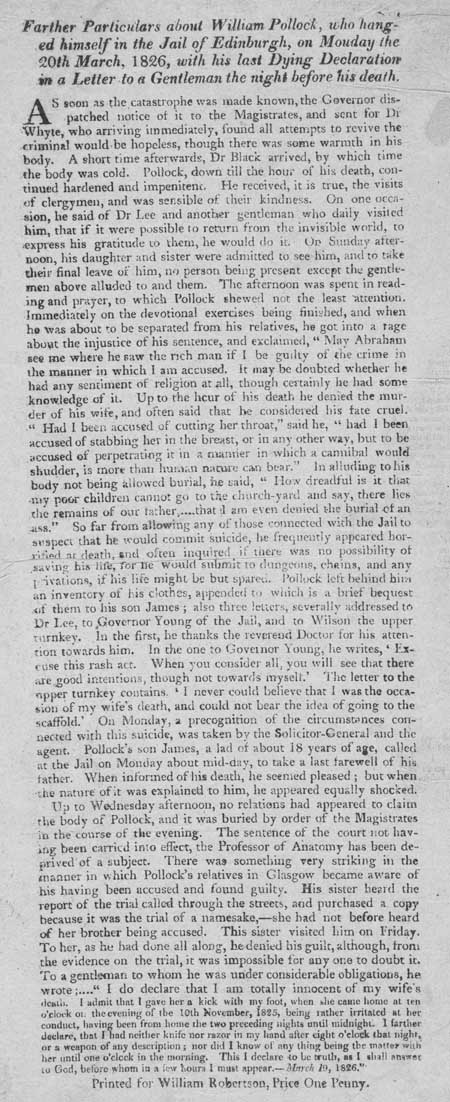Commentary
This report begins: 'Farther Particulars about William Pollock, who hanged himself in the Jail of Edinburgh, on Monday the 20th March, 1826, with his last Dying Declaration in a Letter to a Gentleman the night before his death.' It was published for William Robertson and priced at one penny. In 1826, William Pollock was found guilty of murdering his wife and sentenced to be hanged. Throughout the entire ordeal, Pollock vehemently protested his innocence and, finally, seeing no way out of his situation, chose to commit suicide two days before his execution. This case must have sparked a lot of interest, as many broadsides were issued detailing the facts of the case and Pollock's suicide. A large number of these broadsides can now be found in the National Library of Scotland's collection. Reports recounting dark and salacious deeds were popular with the public, and, like today's sensationalist tabloids, sold in large numbers. Crimes could generate sequences of sheets covering descriptive accounts, court proceedings, last words, lamentations and executions as they occurred. As competition was fierce, immediacy was paramount, and these occasions provided an opportunity for printers and patterers to maximise sales.
View Transcription | Download PDF Facsimile
|
 |
Date of publication:
1826 shelfmark: L.C.Fol.74(395)
 View larger image
View larger image
|


